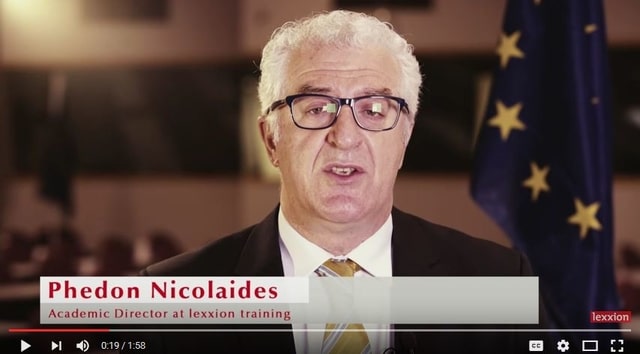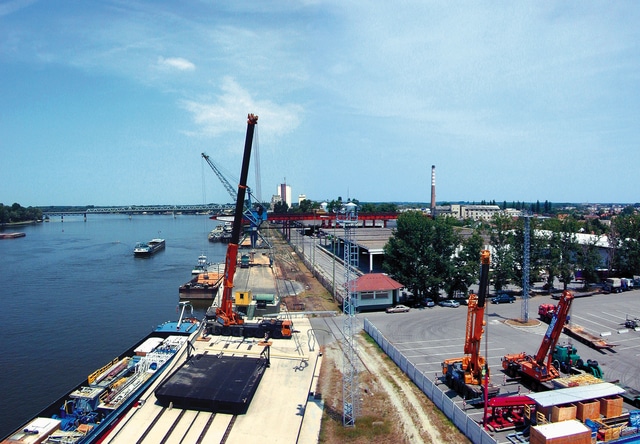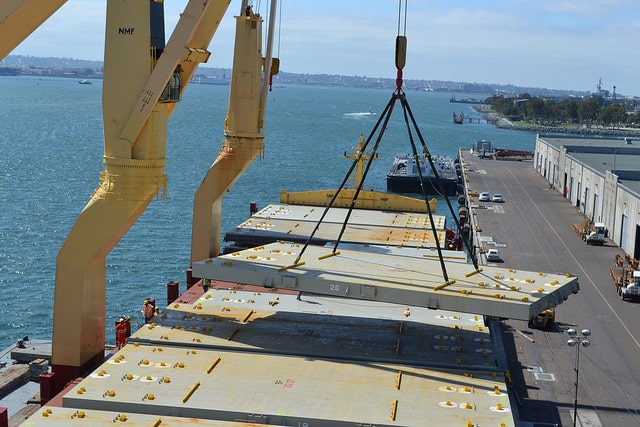What is State aid? Why do I need to be concerned about State aid? These and many more basic questions will be answered in our videos on YouTube. Make sure to visit us! Last week Phedon Nicolaides gave examples of „good aid“. Today he explains which types of State aid are compatible with the internal market, such as environmental aid, regional development […]
State Aid Law
Blog
State Aid Uncovered Blog
In Lexxion’s State Aid Uncovered blog, Prof. Phedon Nicolaides publishes weekly critical analyses of recent State aid judgments and decisions. Each post presents the key points of a court judgment or EU Commission decision, places it in the context of similar case law or practice, assesses the underlying reasoning and highlights any inconsistencies or contradictions.
Guest contributions from other State aid experts will also be published on the blog at irregular intervals to complement the content of the blog posts.
State Aid Uncovered ×
21. July 2016 |
State Aid Uncovered
by Lexxion Publisher
18. July 2016 |
State Aid Uncovered
by Phedon Nicolaides
The risk of relocation outside the EU is not accepted as a justification for the granting of State aid. Introduction The European Commission has had to assess many measures of State aid to producers of electricity from renewable energy sources [RES producers or “green” electricity producers] and to intensive users of electricity [EIUs]. The former have benefitted from investment […]
14. July 2016 |
State Aid Uncovered
by Lexxion Publisher
What is State aid? Why do I need to be concerned about State aid? These and many more basic questions will be answered in our videos on YouTube. Make sure to visit us! Last week Phedon Nicolaides gave „Practical Examples of State aid“, today he addresses the question „What type of aid is allowed?“. This aid is called „good aid“. […]
12. July 2016 |
State Aid Uncovered
by Phedon Nicolaides
There has been an impressive increase in the use of the General Block Exemption Regulation. However, Member States still notify measures which are acknowledged by the Commission with “comfort letters”. Introduction[1] In May 2012, the European Commission launched its State Aid Modernisation [SAM] initiative. After two years of consultations with the Member States, a set of new State aid […]
7. July 2016 |
State Aid Uncovered
by Lexxion Publisher
What is State aid? Why do I need to be concerned about State aid? These and many more basic questions will be answered in our videos on YouTube. Make sure to visit us! After answering the question “Who can grant State aid?” last week, Phedon Nicolaides today gives you some practical examples of State aid such as subsidies by public authorities, […]
5. July 2016 |
State Aid Uncovered
by Phedon Nicolaides
After the spontaneous words on Brexit and State aid last week, I continue with the 2nd part of the post on infrastructure and SGEI today. A provider of services of general economic interest may receive both investment aid and compensation for the extra costs of public service obligations. Part II: SGEI[1] Member States are free to determine the services […]
30. June 2016 |
State Aid Uncovered
by Lexxion Publisher
What is State aid? Why do I need to be concerned about State aid? These and many more basic questions will be answered in our videos on YouTube. Make sure to visit us! After answering the question “What is State aid?” in his last video, Phedon Nicolaides today speaks about “Who can grant State aid?”. Watch the video, comment and subscribe to […]
27. June 2016 |
State Aid Uncovered
by Phedon Nicolaides
The second part of the Lithuanian measure on the LNG terminal was scheduled to be published this week. In view of the referendum in favour of exit of the UK from the EU, the second part of the Lithuanian measure will be published next week. Instead, this week the focus is on the impact of Brexit on State aid. Introduction […]
23. June 2016 |
State Aid Uncovered
by Lexxion Publisher
What is State aid? Why do I need to be concerned about State aid? These and many more basic questions will be answered in our videos on YouTube. Make sure to visit us! Today Phedon Nicolaides answers the question “What is State aid?”, explaining the four criteria by case law & treaty. View now, comment and subscribe to our […]
21. June 2016 |
State Aid Uncovered
by Phedon Nicolaides
A provider of services of general economic interest may receive both investment aid and compensation for the extra costs of public service obligations. Introduction Governments normally support large infrastructural projects through guarantees. This is because such projects have a long life, the initial investment costs are very high and the recoupment of investment takes place over a long period […]
State Aid Uncovered ×
21. July 2016 |
State Aid Uncovered
by Lexxion Publisher
What is State aid? Why do I need to be concerned about State aid? These and many more basic questions will be answered in our videos on YouTube. Make sure to visit us! Last week Phedon Nicolaides gave examples of „good aid“. Today he explains which types of State aid are compatible with the internal market, such as environmental aid, regional development […]
18. July 2016 |
State Aid Uncovered
by Phedon Nicolaides
The risk of relocation outside the EU is not accepted as a justification for the granting of State aid. Introduction The European Commission has had to assess many measures of State aid to producers of electricity from renewable energy sources [RES producers or “green” electricity producers] and to intensive users of electricity [EIUs]. The former have benefitted from investment […]
14. July 2016 |
State Aid Uncovered
by Lexxion Publisher
What is State aid? Why do I need to be concerned about State aid? These and many more basic questions will be answered in our videos on YouTube. Make sure to visit us! Last week Phedon Nicolaides gave „Practical Examples of State aid“, today he addresses the question „What type of aid is allowed?“. This aid is called „good aid“. […]
12. July 2016 |
State Aid Uncovered
by Phedon Nicolaides
There has been an impressive increase in the use of the General Block Exemption Regulation. However, Member States still notify measures which are acknowledged by the Commission with “comfort letters”. Introduction[1] In May 2012, the European Commission launched its State Aid Modernisation [SAM] initiative. After two years of consultations with the Member States, a set of new State aid […]
7. July 2016 |
State Aid Uncovered
by Lexxion Publisher
What is State aid? Why do I need to be concerned about State aid? These and many more basic questions will be answered in our videos on YouTube. Make sure to visit us! After answering the question “Who can grant State aid?” last week, Phedon Nicolaides today gives you some practical examples of State aid such as subsidies by public authorities, […]
5. July 2016 |
State Aid Uncovered
by Phedon Nicolaides
After the spontaneous words on Brexit and State aid last week, I continue with the 2nd part of the post on infrastructure and SGEI today. A provider of services of general economic interest may receive both investment aid and compensation for the extra costs of public service obligations. Part II: SGEI[1] Member States are free to determine the services […]
30. June 2016 |
State Aid Uncovered
by Lexxion Publisher
What is State aid? Why do I need to be concerned about State aid? These and many more basic questions will be answered in our videos on YouTube. Make sure to visit us! After answering the question “What is State aid?” in his last video, Phedon Nicolaides today speaks about “Who can grant State aid?”. Watch the video, comment and subscribe to […]
27. June 2016 |
State Aid Uncovered
by Phedon Nicolaides
The second part of the Lithuanian measure on the LNG terminal was scheduled to be published this week. In view of the referendum in favour of exit of the UK from the EU, the second part of the Lithuanian measure will be published next week. Instead, this week the focus is on the impact of Brexit on State aid. Introduction […]
23. June 2016 |
State Aid Uncovered
by Lexxion Publisher
What is State aid? Why do I need to be concerned about State aid? These and many more basic questions will be answered in our videos on YouTube. Make sure to visit us! Today Phedon Nicolaides answers the question “What is State aid?”, explaining the four criteria by case law & treaty. View now, comment and subscribe to our […]
21. June 2016 |
State Aid Uncovered
by Phedon Nicolaides
A provider of services of general economic interest may receive both investment aid and compensation for the extra costs of public service obligations. Introduction Governments normally support large infrastructural projects through guarantees. This is because such projects have a long life, the initial investment costs are very high and the recoupment of investment takes place over a long period […]
State Aid Uncovered ×
21. July 2016 |
State Aid Uncovered
by Lexxion Publisher
What is State aid? Why do I need to be concerned about State aid? These and many more basic questions will be answered in our videos on YouTube. Make sure to visit us! Last week Phedon Nicolaides gave examples of „good aid“. Today he explains which types of State aid are compatible with the internal market, such as environmental aid, regional development […]
18. July 2016 |
State Aid Uncovered
by Phedon Nicolaides
The risk of relocation outside the EU is not accepted as a justification for the granting of State aid. Introduction The European Commission has had to assess many measures of State aid to producers of electricity from renewable energy sources [RES producers or “green” electricity producers] and to intensive users of electricity [EIUs]. The former have benefitted from investment […]
14. July 2016 |
State Aid Uncovered
by Lexxion Publisher
What is State aid? Why do I need to be concerned about State aid? These and many more basic questions will be answered in our videos on YouTube. Make sure to visit us! Last week Phedon Nicolaides gave „Practical Examples of State aid“, today he addresses the question „What type of aid is allowed?“. This aid is called „good aid“. […]
12. July 2016 |
State Aid Uncovered
by Phedon Nicolaides
There has been an impressive increase in the use of the General Block Exemption Regulation. However, Member States still notify measures which are acknowledged by the Commission with “comfort letters”. Introduction[1] In May 2012, the European Commission launched its State Aid Modernisation [SAM] initiative. After two years of consultations with the Member States, a set of new State aid […]
7. July 2016 |
State Aid Uncovered
by Lexxion Publisher
What is State aid? Why do I need to be concerned about State aid? These and many more basic questions will be answered in our videos on YouTube. Make sure to visit us! After answering the question “Who can grant State aid?” last week, Phedon Nicolaides today gives you some practical examples of State aid such as subsidies by public authorities, […]
5. July 2016 |
State Aid Uncovered
by Phedon Nicolaides
After the spontaneous words on Brexit and State aid last week, I continue with the 2nd part of the post on infrastructure and SGEI today. A provider of services of general economic interest may receive both investment aid and compensation for the extra costs of public service obligations. Part II: SGEI[1] Member States are free to determine the services […]
30. June 2016 |
State Aid Uncovered
by Lexxion Publisher
What is State aid? Why do I need to be concerned about State aid? These and many more basic questions will be answered in our videos on YouTube. Make sure to visit us! After answering the question “What is State aid?” in his last video, Phedon Nicolaides today speaks about “Who can grant State aid?”. Watch the video, comment and subscribe to […]
27. June 2016 |
State Aid Uncovered
by Phedon Nicolaides
The second part of the Lithuanian measure on the LNG terminal was scheduled to be published this week. In view of the referendum in favour of exit of the UK from the EU, the second part of the Lithuanian measure will be published next week. Instead, this week the focus is on the impact of Brexit on State aid. Introduction […]
23. June 2016 |
State Aid Uncovered
by Lexxion Publisher
What is State aid? Why do I need to be concerned about State aid? These and many more basic questions will be answered in our videos on YouTube. Make sure to visit us! Today Phedon Nicolaides answers the question “What is State aid?”, explaining the four criteria by case law & treaty. View now, comment and subscribe to our […]
21. June 2016 |
State Aid Uncovered
by Phedon Nicolaides
A provider of services of general economic interest may receive both investment aid and compensation for the extra costs of public service obligations. Introduction Governments normally support large infrastructural projects through guarantees. This is because such projects have a long life, the initial investment costs are very high and the recoupment of investment takes place over a long period […]










